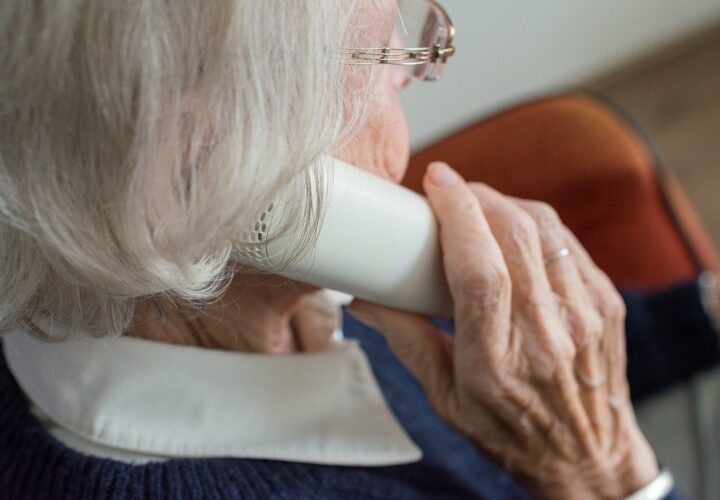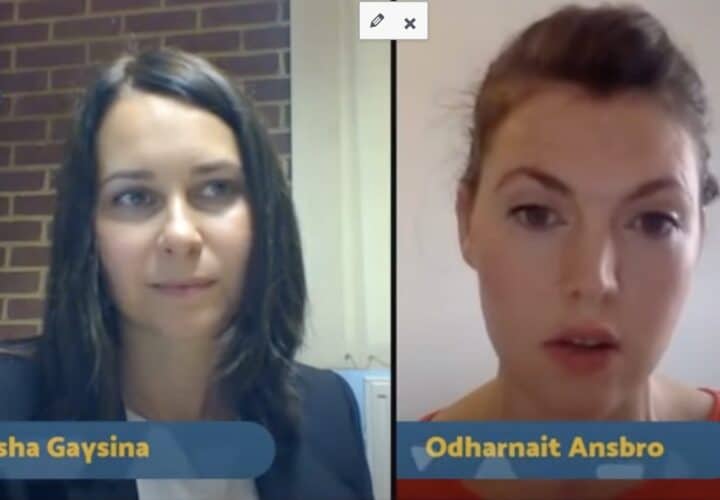Science says: Call your grandparents. A new study shows that regular phone calls could improve people’s mental health — a reminder of the value in reaching out to those feeling isolated, especially older adults who live alone.
As the COVID-19 lockdown has laid bare the effects of social isolation, initiatives offering companionship for older adults have provided a critical source of connection, resulting in new connections and friendships across all ages. Through “grandkids on-demand” services,” health tech companies have offered companionship and assistance with daily routines for older adults. Community programs have also launched initiatives to combat loneliness during the pandemic. For instance, the Weekly Smile Program from Time Out, which is coordinated by the Penn Memory Center and Temple University’s Intergenerational Center, have connected students with older adults through Zoom meetings — or simply through the telephone.
After all, all it can take to brighten a person’s day is a routine phone call. A recent study in JAMA Psychiatry highlights the benefits of reaching out to others and the value of small, daily acts of kindness.
After receiving regular phone calls from volunteers, participants in the randomized controlled trial reported feeling less lonely and experienced improvements in their mood during the pandemic.
The study’s lead author Maninder Kahlon said a key aspect of the four-week program, known as ‘Sunshine Calls,’ was the callers’ focus on listening to the person they called, and engaging in dialogues that centered on that person.
“The most important part of this whole program was to prioritize the person at the other end of the call,” Kahlon, associate professor of population health at the University of Texas at Austin, told the American Medical Association. “The way they would know that they were successful is if by the end of the four weeks, they — the caller — had learned about the other person [and] if they understood who is this person: What are their likes and dislikes? What do they like talking about? What’s important to them?”
In the study, Kahlon and colleagues enrolled 240 people from Meals on Wheels Central Texas, an organization that serves older adults and people with disabilities. The majority of the participants were single, divorced or widowed and about half were living alone.
The researchers recruited 16 callers — most of whom were college undergraduates — from the ages of 17 to 23, briefly training them on communication skills such as asking open questions, building on a conversation and allowing time for the call receiver to speak.
Participants in the intervention group picked their preferred days and times for the calls. After receiving five calls in the first week, they were given the choice of getting two to five weekly calls — about 10 minutes each — for the remainder of the program. Most chose to continue receiving five a week.
Following the study period, participants in the intervention group reported feeling less lonely, depressed and anxious compared to control participants who didn’t receive any calls.
With a shortage of mental health professionals in the United States, the researchers hope that the program delivered by layperson callers would be a model for improving people’s wellbeing through telephone interventions. Experts say there isn’t a one-size-fits-all solution to alleviating loneliness — a public health crisis that has been exacerbated by the COVID-19 pandemic. But phone-based programs could be one solution, a simple and scalable approach. And further research should explore whether the benefits of the recent study’s program would sustain and improve over a longer period, Kahlon and colleagues wrote.
As Kahlon said of a takeaway from the recent study, “I hope it encourages every person who’s thought twice about calling their parents or their older family members [to] go ahead and do it because you’re really making a difference.”



